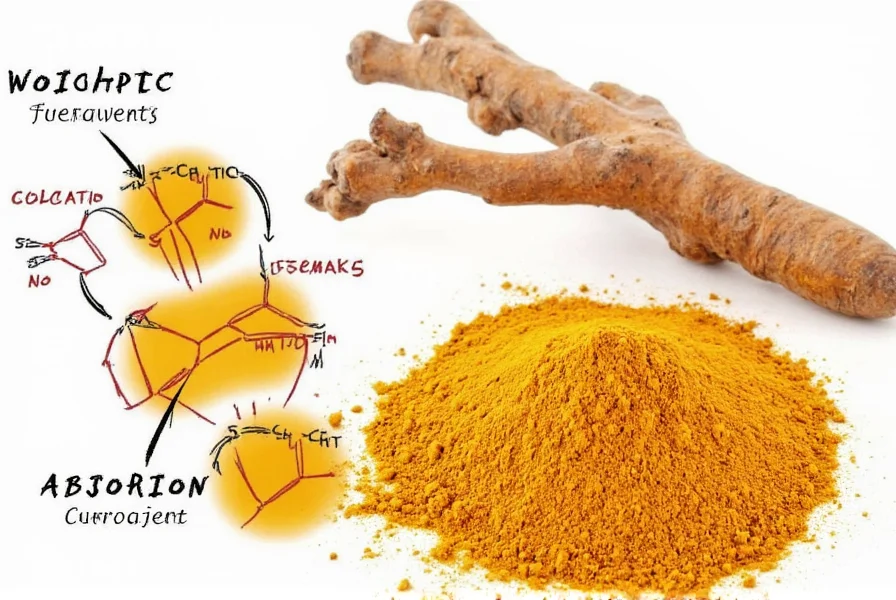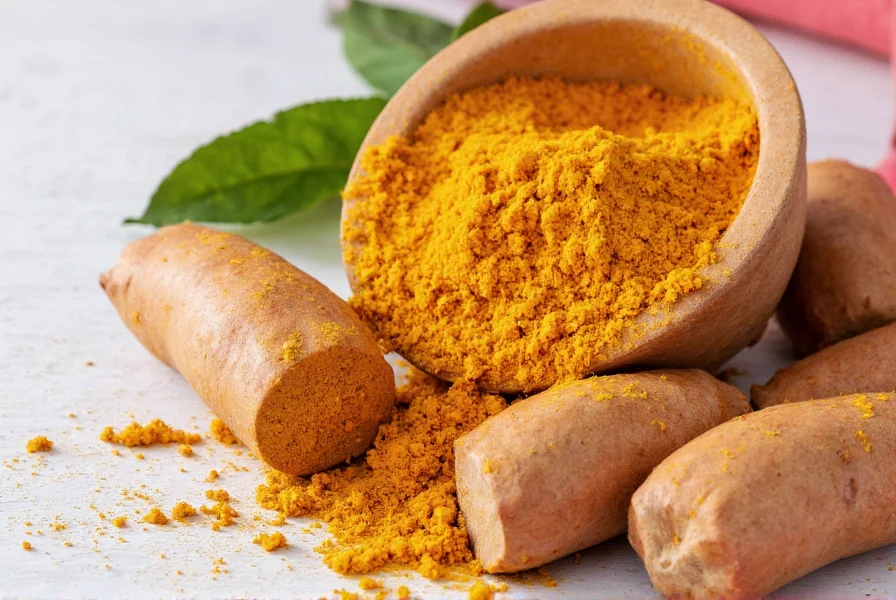The Science Behind Turmeric's Health Properties
For centuries, turmeric has been a staple in Ayurvedic medicine and traditional Asian cooking. Modern science now validates many of its purported health benefits while revealing important limitations. This golden spice contains curcuminoids, with curcumin being the most studied compound responsible for turmeric's vibrant color and therapeutic properties.
Proven Health Benefits of Turmeric
Multiple clinical studies demonstrate turmeric's effectiveness for specific health conditions. A comprehensive review published in Foods journal confirms curcumin's potent anti-inflammatory effects, comparable to some pharmaceutical drugs but without serious side effects when used appropriately.
| Health Benefit | Scientific Evidence Level | Recommended Daily Amount |
|---|---|---|
| Anti-inflammatory effects | Strong clinical evidence | 500-2,000 mg curcumin |
| Antioxidant properties | Well-established | 500-1,500 mg curcumin |
| Joint pain relief | Moderate clinical support | 1,000 mg curcumin daily |
| Mood support | Emerging evidence | 1,000 mg curcumin daily |
Understanding Curcumin's Bioavailability Challenge
One critical limitation of turmeric is curcumin's poor bioavailability. When consumed alone, the body absorbs less than 1% of curcumin. This explains why traditional preparations often combine turmeric with black pepper (containing piperine) or healthy fats. Modern supplements address this through:
- Liposomal formulations
- Nanoparticle technology
- Phospholipid complexes
- Piperine-enhanced products
Research in the Journal of Medicinal Food shows these enhanced formulations can increase absorption by up to 2,000% compared to standard turmeric powder.

Important Safety Considerations
While turmeric is safe for most people in culinary amounts, higher supplemental doses require caution:
- Digestive discomfort may occur above 8 grams daily
- May interact with blood thinners like warfarin
- Could exacerbate gallbladder issues
- Potential interactions with diabetes medications
- Not recommended during pregnancy in medicinal amounts
A 2022 safety review in Phytotherapy Research concluded that doses up to 500 mg of curcumin three times daily appear safe for most adults, but medical consultation is advised for those with pre-existing conditions or taking medications.
Evidence-Based Recommendations
Based on current research, here's how to safely incorporate turmeric:
- For general wellness: Add 1-3 grams of culinary turmeric to meals daily
- For targeted health benefits: Choose supplements with enhanced bioavailability providing 500-1,000 mg curcumin daily
- Always consume with black pepper or healthy fats to boost absorption
- Consult your healthcare provider if taking medications or have medical conditions
- Discontinue use two weeks before surgery due to potential blood-thinning effects
Limitations of Current Research
Despite promising findings, turmeric research has limitations. Many studies use highly concentrated curcumin extracts rather than culinary turmeric. Most clinical trials are short-term, typically lasting 8-12 weeks. Long-term safety data remains limited, and optimal dosing varies significantly between individuals.
A comprehensive analysis in Advances in Nutrition emphasizes that while turmeric shows therapeutic potential, it should complement rather than replace conventional medical treatments for serious conditions.
Practical Tips for Maximizing Benefits
To get the most from turmeric in your diet:
- Add turmeric to warm dishes with olive oil or coconut milk
- Combine with freshly ground black pepper
- Consider golden milk recipes for evening consumption
- Store turmeric in a cool, dark place to preserve potency
- Look for supplements with third-party testing verification
Conclusion: A Valuable Addition with Realistic Expectations
Turmeric offers genuine health benefits supported by scientific research, particularly for inflammation management and antioxidant protection. However, it's not a miracle cure. Realistic expectations, proper usage, and awareness of limitations are crucial. When incorporated thoughtfully into a balanced diet and healthy lifestyle, turmeric can be a valuable component of preventive health strategies.











 浙公网安备
33010002000092号
浙公网安备
33010002000092号 浙B2-20120091-4
浙B2-20120091-4